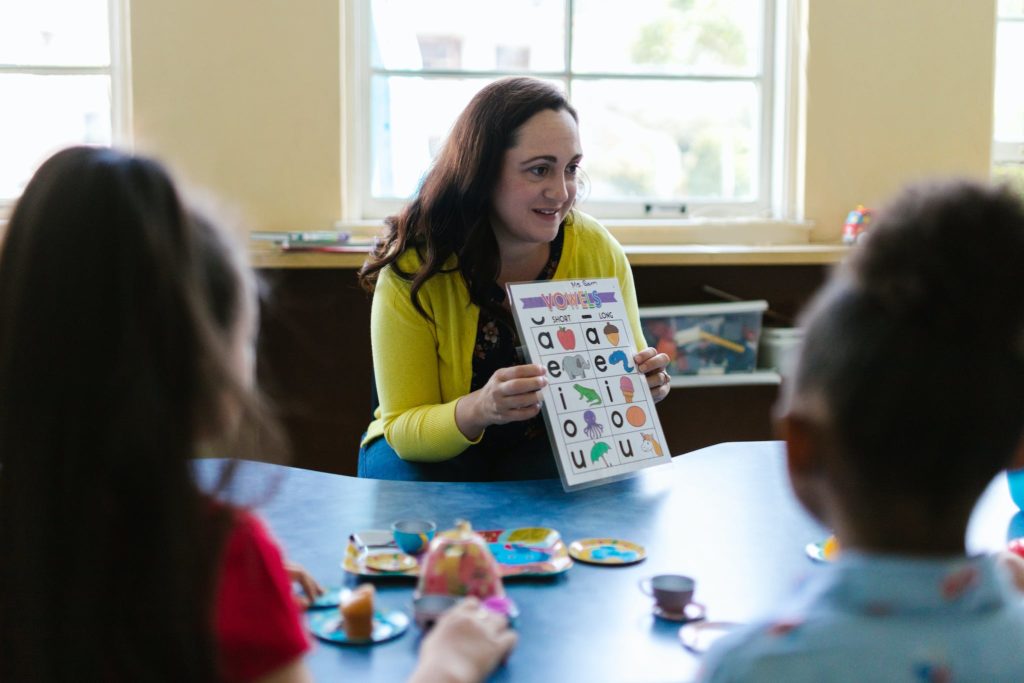Can You Homeschool 3 Days a Week? Discover Flexibility in Learning!
Ever thought about the perks of homeschooling and how it could fit into a super flexible schedule? 🤔🗓️
You’re not alone if you’re wondering: Can we really make homeschooling work just three days a week? 📚🕒
In this article, I’m going to dive into the idea of a three-day homeschool week and show you how it can still offer a top-notch education with heaps of flexibility. 🌟💡
So, let’s get into how you can make the most out of a shorter homeschooling week, balancing learning and freedom like a pro! 🚀📅
Key Takeaways:
- Homeschooling three days a week offers flexibility and freedom in learning.
- Creating a balanced schedule is essential for successful homeschooling.
- Designating core learning days helps ensure a comprehensive education.
- Part-time homeschooling allows for exploration and field trips.
- Balancing academics with life skills and enrichment activities is important.
The Benefits of Homeschooling 3 Days a Week
Homeschooling three days a week can offer numerous benefits to both children and parents. By homeschooling part-time, families have the opportunity to create a balanced schedule that allows for other activities and commitments.
It provides flexibility for families who may have working parents or other obligations outside of homeschooling.
Additionally, part-time homeschooling can be a great alternative for families who want to take a more relaxed approach to education while still providing a quality education for their children.
One of the advantages of homeschooling part-time is the ability to incorporate exploration and field trips into the curriculum.
By dedicating one day to exploring new places, visiting museums, or engaging in hands-on activities, children can have unique learning experiences outside of the traditional classroom setting.
This allows for a more well-rounded education and provides opportunities for children to apply what they have learned in real-world situations.
Part-time homeschooling provides the opportunity to balance academics with life skills and enrichment activities.
In addition to core subjects, parents can incorporate practical life skills such as cooking, gardening, and budgeting into their homeschool schedule. This allows children to develop important life skills while still receiving a quality education.
Enrichment activities such as art, music, nature study, and physical exercise can also be integrated to provide a well-rounded learning experience.
Creating a 3-Day Homeschool Schedule

When homeschooling three days a week, it’s important to have a flexible schedule that allows for both academic learning and other activities.
Here are some tips for creating a 3-day homeschool schedule that provides structure and flexibility:
- Decide on core subjects: Determine which subjects are essential to cover during the three days. Focus on core subjects like math, language arts, science, and social studies.
- Establish a routine: Set a consistent schedule for each day, with designated times for different subjects. This will help children and parents stay organized and know what to expect.
- Set realistic goals: Break down each subject into manageable goals for each day. Prioritize the most important concepts and skills to cover during the three days.
- Incorporate flexibility: Leave room in the schedule for flexibility and adjustability. This allows for spontaneous activities, field trips, or further exploration of topics that capture your child’s interest.
By following these guidelines, you can create a 3-day homeschool schedule that provides structure, promotes learning, and allows for flexibility.
Remember, every family’s schedule will look different, so find what works best for you and your child.
Designating Core Learning Days

When homeschooling three days a week, it is important to designate specific days for core learning.
These core learning days should focus on essential subjects such as math, language arts, science, and social studies.
By dedicating full days to these core subjects, parents can ensure that their children receive a comprehensive education while still allowing for flexibility in their schedule.
The other days of the week can be used for other activities and enrichment opportunities.
By designating core learning days, parents can create a structured routine that ensures consistent progress in key subjects.
This approach allows for a deeper focus and understanding of each subject, as students have dedicated time to delve into the material without the distractions of other subjects.
It also provides a sense of consistency and routine, which can be beneficial for both parents and children.
Benefits of Designating Core Learning Days:
- Focus and deep understanding of core subjects
- Consistency in learning routine
- Opportunity for in-depth exploration of each subject
- Flexibility to allocate other days for enrichment activities
By incorporating designated core learning days into a three-day homeschool schedule, parents can strike a balance between structure and flexibility.
This approach ensures that children receive a well-rounded education while still allowing for exploration and other activities that enhance their learning experience.
Designating core learning days provides a framework for success and helps parents create a schedule that works for their family’s unique needs and preferences.
Incorporating Exploration and Field Trips

When it comes to part-time homeschooling, one of the greatest advantages is the flexibility to incorporate exploration and field trips into the curriculum.
By dedicating one day to these unique learning experiences, children can have hands-on encounters outside of the traditional classroom setting.
Field trips offer the opportunity to explore new places, visit museums, engage in interactive activities, and connect with the world around them.
These experiences can enhance learning by providing real-world applications for the subjects being taught.
Whether it’s a trip to a science museum or a nature walk in the local park, children can gain a deeper understanding of the concepts they learn.
Additionally, incorporating exploration and field trips into the curriculum fosters a sense of curiosity and excitement.
It allows children to see the practical applications of what they are learning, making education more engaging and relevant.
By stepping outside of the traditional setting, children can develop a broader perspective and gain a greater appreciation for the world around them.
Key Points:
- Incorporating exploration and field trips adds hands-on learning experiences to homeschooling.
- Field trips can include visits to museums, interactive activities, and connecting with the world.
- Exploration fosters curiosity, excitement, and a deeper understanding of concepts.
Balancing Academics and Life Skills

Part-time homeschooling offers a unique opportunity to strike a balance between academics and life skills.
In addition to the core subjects, parents can incorporate practical life skills into their homeschooling schedule.
This means that alongside math, language arts, science, and social studies, children can learn valuable skills like cooking, gardening, and budgeting.
By integrating these life skills into the curriculum, children can develop important practical knowledge that will serve them well in their everyday lives.
Enrichment activities can also play a significant role in part-time homeschooling. Incorporating activities such as art, music, nature study, and physical exercise can provide a well-rounded learning experience.
These activities not only engage children’s creativity and imagination but also help them explore their interests and passions.
By nurturing these areas of development, parents can foster a love for learning and encourage children to pursue their passions beyond the traditional academic subjects.
It’s important to remember that part-time homeschooling is not just about academic knowledge. It’s about nurturing the whole child and preparing them for life outside of school.
By incorporating life skills and enrichment activities into the homeschooling schedule, parents can provide their children with a well-rounded education that prepares them for success in both academics and real-life situations.
Allowing for Flexibility and Individualized Learning
One of the key advantages of homeschooling three days a week is the ability to allow for flexibility and individualized learning.
With a flexible homeschool schedule, I can tailor the curriculum and teaching methods to suit the unique needs and interests of my child.
This individualized approach to learning not only caters to my child’s strengths and weaknesses but also promotes a love for learning and fosters a deeper understanding of the subjects being taught.
I have the freedom to choose the resources and materials that best fit my child’s learning style and preferences.
Whether it’s hands-on activities, online courses, or textbooks, I can customize the learning experience to ensure that my child is fully engaged and motivated to learn.
This flexibility also allows me to adapt the pace of instruction based on my child’s progress, allowing for a more effective and efficient learning experience.
Furthermore, homeschooling three days a week gives me the opportunity to explore and incorporate real-world experiences into our curriculum.
We can take field trips, engage in community service, and participate in extracurricular activities that align with my child’s interests and passions.
These experiences not only enhance the learning process but also provide valuable opportunities for my child to apply their knowledge and skills in practical situations.
Benefits of Allowing for Flexibility and Individualized Learning:
- Customized curriculum and teaching methods based on my child’s needs and interests.
- Ability to choose resources and materials that best fit my child’s learning style.
- Adaptation of the pace of instruction for more effective learning.
- Incorporation of real-world experiences and hands-on learning opportunities.
By tailoring the curriculum, engaging my child’s interests, and incorporating real-world experiences, I can foster a love for learning and ensure a comprehensive education.
The ability to adapt and customize the learning experience is a powerful advantage that homeschooling offers, enabling me to provide the best education for my child’s specific needs and goals.
Finding the Right Balance: Structure and Flexibility

When homeschooling three days a week, striking the right balance between structure and flexibility is crucial.
It’s important to establish a clear routine and set realistic goals for each subject, while still allowing for the freedom to explore other interests and activities.
Here are a few key strategies to help you find that perfect balance:
- Set clear priorities: Determine which subjects are essential to cover during the three days and prioritize your time accordingly. Focus on core subjects like math, language arts, science, and social studies to ensure a comprehensive education.
- Incorporate flexibility: While core subjects should be given dedicated learning time, leave room in your schedule for flexibility. Use the other days of the week for exploration, field trips, and enrichment activities that align with your child’s interests and learning style.
- Regularly assess and adjust: Continuously evaluate your homeschool schedule to ensure it meets the evolving needs of your child. Make necessary adjustments to maintain a healthy balance between structure and flexibility, maximizing both academic achievement and personal growth.
By finding the right balance between structure and flexibility, you can create a homeschooling experience that provides the structure needed for academic success while allowing for the freedom to explore other passions and life skills.
Considering Different Homeschooling Styles

When it comes to part-time homeschooling, families have the opportunity to explore different homeschooling styles that align with their educational philosophy and goals.
Here are a few popular homeschooling styles to consider:
1. Charlotte Mason
The Charlotte Mason method emphasizes living books, nature study, and hands-on learning.
With this style, children engage in literature-based learning, short lessons, and narration to develop a love for learning and cultivate their imaginations.
2. Traditional Schooling
For families who want a more structured approach to homeschooling, traditional schooling provides a familiar structure similar to public or private schools.
It typically involves textbooks, workbooks, and a set curriculum and schedule.
3. Waldorf
The Waldorf method focuses on nurturing the whole child and incorporates art, music, movement, and nature into daily learning.
This holistic approach emphasizes imagination, creativity, and hands-on activities to support a child’s development.
By exploring these different homeschooling styles, families can find one that resonates with their values and aligns with their desired three-day homeschooling schedule.
Each style offers unique approaches to education, allowing families to customize their child’s learning experience and make the most of their part-time homeschooling journey.
Embracing the Benefits of Homeschooling

As a homeschooling parent, I understand the desire for flexibility and freedom in education.
Homeschooling three days a week provides families with the opportunity to embrace the benefits of homeschooling while still allowing for other commitments and activities.
By creating a balanced schedule that encompasses core subjects, exploration, and enrichment activities, parents can ensure their children receive a well-rounded education that caters to their unique needs and interests.
One of the primary advantages of homeschooling three days a week is the ability to tailor the curriculum and teaching methods to suit the individualized learning style of each child.
This personalized approach to education fosters a love for learning and deepens the understanding of the subjects being taught.
Flexibility in homeschooling also allows families to explore different homeschooling styles, such as Charlotte Mason, traditional schooling, or Waldorf, and adapt them to fit their three-day homeschool schedule.
Part-time homeschooling offers the opportunity for children to develop important life skills alongside academics.
Parents can incorporate practical skills like cooking, gardening, and budgeting into their homeschool schedule, ensuring their children are well-prepared for the future.
Enrichment activities, such as art, music, nature study, and physical exercise, can also be integrated to provide a well-rounded learning experience.
By embracing the benefits of homeschooling, families can create a flexible and enriching education that suits their needs.
How Bridgeway Academy Supports Homeschool Flexibility

When it comes to homeschooling flexibility, Bridgeway Academy is here to support families every step of the way.
With a variety of accredited homeschool programs, they provide the resources and guidance needed to create a successful homeschooling experience.
Whether families prefer online-only courses, live online classes, textbook learning, or a blended approach, Bridgeway Academy offers options to fit their needs.
With Bridgeway Academy, families can take advantage of a flexible homeschooling schedule that allows for personalized learning.
They understand that each student is unique, with their own learning style, interests, and goals. That’s why they provide the flexibility to tailor the curriculum to meet individual needs, ensuring that each child receives a quality education.
In addition to their flexible curriculum options, Bridgeway Academy also offers support and guidance for parents.
Their experienced staff is available to answer questions, provide assistance, and offer personalized recommendations.
Whether families are new to homeschooling or looking to enhance their current homeschool program, Bridgeway Academy is there to provide the support they need.
How Bridgeway Academy Supports Homeschool Flexibility:
- Flexible homeschooling schedule options
- Accredited homeschool programs
- Online-only courses, live online classes, textbook learning, and blended learning options
- Personalized curriculum tailored to each student
- Experienced staff available for support and guidance
With Bridgeway Academy, families can have peace of mind knowing that they have a trusted partner in their homeschooling journey.
Their commitment to flexibility and personalized education ensures that every child can thrive and succeed in their unique homeschool environment.
Conclusion: Finding Your Perfect Fit

As I conclude this article, I want to emphasize the importance of finding your perfect fit when it comes to homeschooling. The beauty of homeschooling three days a week lies in its flexibility and the ability to tailor your child’s education to their unique needs and interests.
Part-time homeschooling provides families with the freedom to create a schedule that works for them, balancing academics with exploration and enrichment.
By incorporating practical life skills, field trips, and individualized learning, parents can ensure their children receive a well-rounded education that goes beyond the traditional classroom setting.
With a variety of homeschooling options available, such as online courses, live online classes, and textbook learning, families can find the right resources and support to make their homeschooling experience a success.
Whether you choose a structured approach or prefer a more relaxed style, the key is to find what works best for your family and your child’s educational journey.
So, if you’re considering part-time homeschooling, embrace the homeschooling flexibility and explore the options that are available to you.
Remember, homeschooling is not just about academics – it’s about creating an educational experience that aligns with your family’s values, goals, and lifestyle.
With the right balance of structure and flexibility, homeschooling three days a week can truly be the perfect fit for your family.
FAQ
Can I homeschool my child for just three days a week?
Yes, homeschooling three days a week is possible and offers flexibility in learning.
What are the benefits of homeschooling three days a week?
Homeschooling part-time allows for a balanced schedule, flexibility for working parents, and a more relaxed approach to education.
How do I create a 3-day homeschool schedule?
To create a 3-day homeschool schedule, prioritize core subjects and establish a routine with realistic goals.
Which days should be designated as core learning days?
Core learning days should focus on essential subjects such as math, language arts, science, and social studies.
Can I incorporate exploration and field trips into the homeschooling curriculum?
Yes, dedicating one day to exploration and field trips offers unique learning experiences outside of the traditional classroom setting.
How can I balance academics and life skills in part-time homeschooling?
In addition to core subjects, parents can incorporate practical life skills, enrichment activities, art, music, nature study, and physical exercise into the homeschool schedule.
Will homeschooling three days a week allow for individualized learning?
Yes, homeschooling part-time provides the opportunity to tailor the curriculum and teaching methods to suit the unique needs and interests of the child.
How can I find the right balance between structure and flexibility in homeschooling?
Setting clear goals and priorities, designating core learning times, and regularly assessing and adjusting the schedule will help achieve a balance between structure and flexibility.
What homeschooling styles can be adapted to a three-day schedule?
Popular homeschooling styles such as Charlotte Mason, traditional schooling, and Waldorf can be adapted to fit a three-day homeschool schedule.
How can Bridgeway Academy support my homeschool flexibility?
Bridgeway Academy offers a variety of accredited homeschool programs, including online courses, live online classes, textbook learning, and blended learning, to maximize education flexibility.
How can homeschooling provide a perfect fit for my family?
Homeschooling provides flexibility, individualized learning, and the opportunity to align education with your unique needs and goals.







